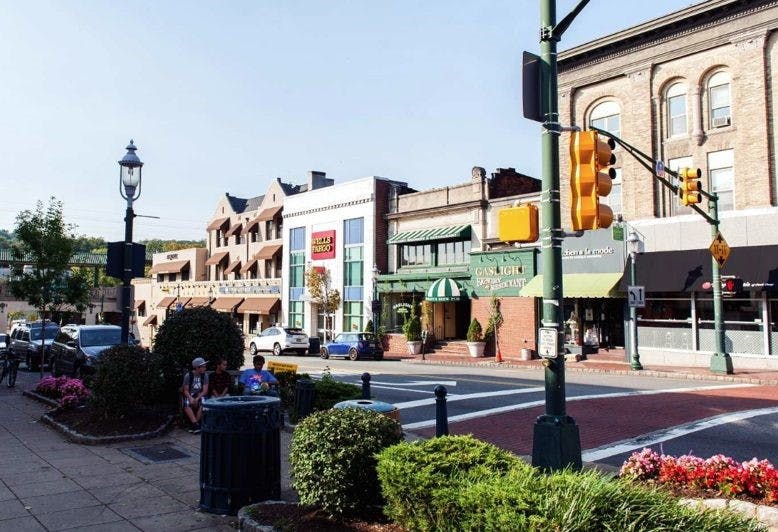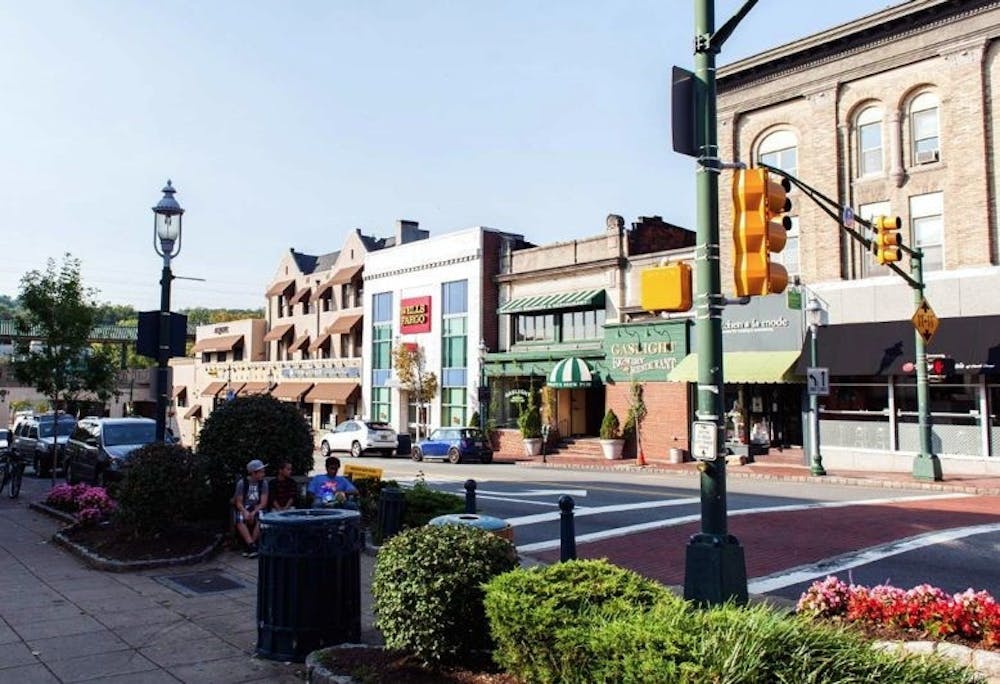Retailers in South Orange are prohibited from using plastic carry-out bags after a new ordinance went into effect on Jan 1.

The law, passed by the South Orange Village Board of Trustees last July, is intended to encourage the use of reusable bags at retail establishments throughout South Orange. In addition to banning plastic bags, the law also creates a five cent fee for paper carry-out bags.
The law follows years of effort on the part of the Village government to reduce plastic waste in South Orange.
“For five years, one of the things the Environmental Commission and Green Team have been focusing on is a reduction of plastic usage,” Walter Clarke, Village Trustee and member of the Village’s Environmental Commission said.
Residents and retailers in South Orange had mixed reactions to the proposal, with some expressing displeasure with the ban and others arguing that it did not go far enough to reduce plastic consumption, according to Clarke.
One retailer affected by the law, Stop & Shop, was prepared for the change.
“On the day of the bag ban, our impacted stores, such as South Orange, handed out 300 free reusable bags to help customers with the transition,” Stefanie Shuman, Public Relations Manager for Stop & Shop stores in New Jersey, said. “We also had an information table set up should any shoppers have questions.”
The law will also apply to the university, banning plastic bags at the bookstore as well as the Pirate Convenience Store in the commuter cafeteria.
Members of Seton Hall’s Environmental Protection and Conservation Committee (EPACC) were supportive of the new law.
“I think that a plastic bag ban is a good idea,” Carolyn Murray, sophomore EPACC member, said. “Eliminating plastic bags will cut out a lot of waste.”
Murray said she would like to see the government of South Orange go further with sustainability in the future.
“Something I’d like to see the South Orange government implement is a composting program… I’d like to see [food] handled in a more sustainable way.”
Freshman theater and political science major, Olivia Ransbottom, supports the ban Ransbottom said. “If they want to ban plastic bags in order to help the environment, I think that’s okay,” she said.
Many students feel that the ban on plastic bags is necessary to benefit the environment, despite the convenience of single-use plastic
“I think that it’s a good thing,” freshman environmental science major, Emilie Wigchers said. “Single use plastic is super convenient for a lot of people, which is why most people use it, and I am glad the local government stepped in to limit it.”
South Orange’s need to reduce plastic waste became pressing in 2017 when China, then the destination of a majority of America’s recyclable plastic, banned the import of most recyclables. This put pressure on domestic recycling facilities, like South Orange’s, which is not made to handle plastic bags.
“It seemed like a good idea to take one of the major players out of our local recycle streams, since [plastic bags] are not recyclable in our facility,” Clarke said.
Since then, one way that the village has tried to limit plastic usage in the past is through the “SO Not Plastic” initiative, which challenged residents to live a full week without single-use plastic in September 2017.
In 2018, the idea of a plastic bag ban made its way to the government of South Orange.“
The environmental commission did a bunch of research on what was happening in other places, and we brought the idea to the board of trustees,” Clarke said.
The commission’s research showed that the most effective way to encourage people to use reusable bags was through what is called a “second generation” bag law. A “second generation” bag law consists of not only a ban on plastic bags, but also a fee for paper bags.
In many such systems, the government profits off of the paper bag fee. However, in order to convince local businesses to support the ordinance, the law was written to allow the retailers to keep whatever fee they charge for the bags, with none of the fee going directly to the government of South Orange.
The paper bag fee, however, does not apply to everyone.
“[When the ordinance was being debated,] there was a contingent of people who were worried about more social justice issues, so the main social justice issues were [about] people who were food insecure, and senior citizens,” Clarke said.
As a result, the bag fee is optional for shoppers who have access to Supplemental Nutrition Assistance Program (SNAP) can pay the fee if they want to, and senior citizens, defined by the law as anyone over the age of 65, can opt-in to the fee.
South Orange is one of many municipalities throughout New Jersey to ban plastic bags in recent years. Plastic bag bans in Asbury Park, Bayonne, Camden County, Garfield, Glen Rock, Lambertville, Paramus, Ridgewood, Saddle Brook and Somers Point also went into effect on January 1.
A similar plastic bag ban in Maplewood went into effect last July.
The ordinance passed the South Orange Board of Trustees this July by a vote of 4-0 with two trustees absent.
The full text of the ordinance can be found on the South Orange Village website.
Daniel O’Connor can be reached at daniel.oconnor1@student.shu.edu.





